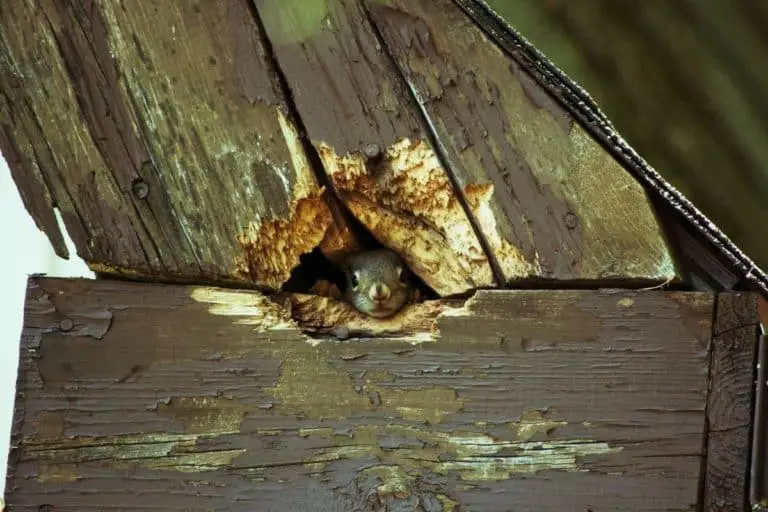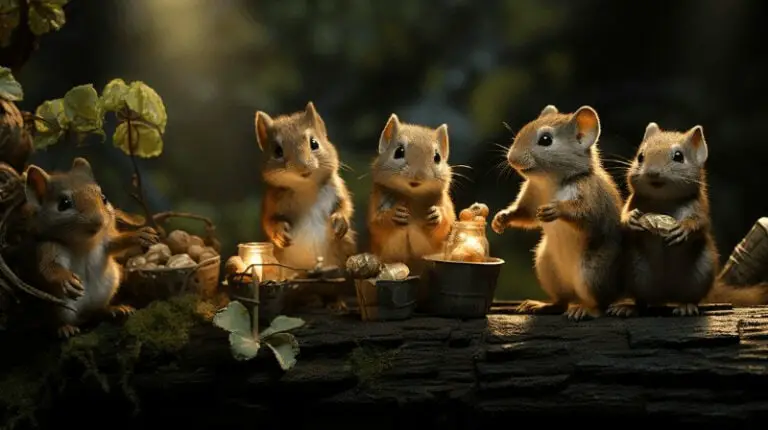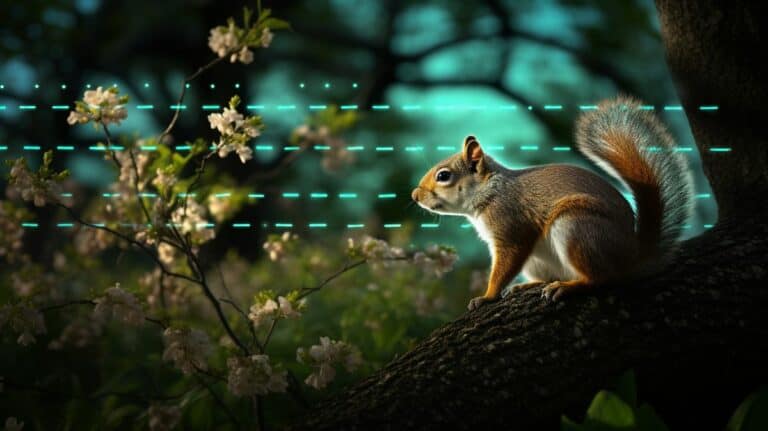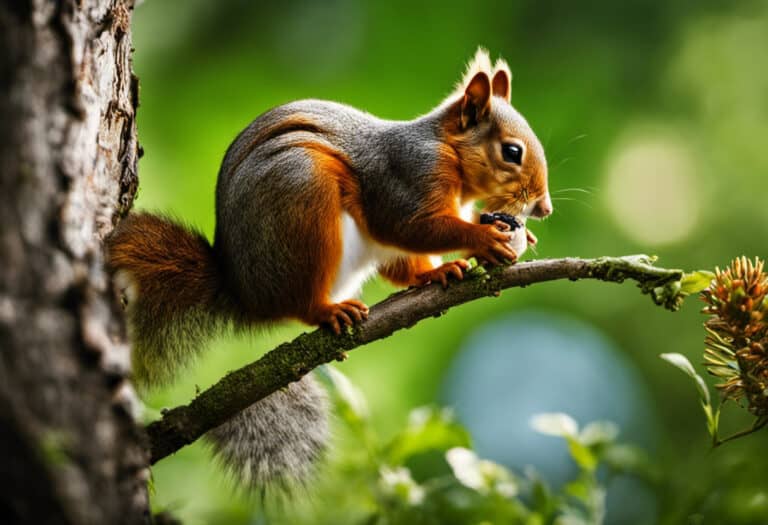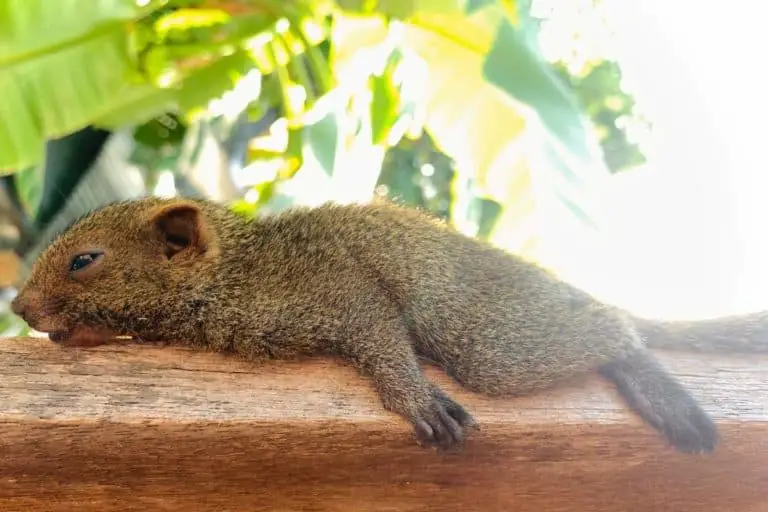Can Squirrels Eat Bread?
Did you know that squirrels are known to consume a wide variety of foods, including bread? In fact, bread can be a tempting treat for these furry creatures due to its availability and enticing aroma.
However, before you start feeding bread to squirrels, it is essential to understand the nutritional value, potential health benefits, and risks involved.
This article aims to provide you with a comprehensive guide on whether squirrels can eat bread, as well as alternative food options and tips for safely attracting squirrels without relying on bread.
Key Takeaways
- Bread lacks essential nutrients for squirrels to thrive.
- Feeding bread regularly can lead to obesity and malnutrition.
- Squirrels should be offered fruits, vegetables, nuts, and seeds for better nutrition.
- Bread consumption can have nutritional consequences for squirrels.
Nutritional Value of Bread for Squirrels
You’ll be surprised to learn that bread doesn’t offer much nutritional value for squirrels. While it may be tempting to feed them bread as a treat, it is important to understand that it lacks essential nutrients that squirrels need to thrive.
Bread is primarily made from refined flour, which is low in fiber and protein, two key components of a squirrel’s diet. Feeding bread to squirrels regularly can lead to potential dangers such as obesity and malnutrition.
Instead, consider offering alternative options that are more beneficial for their health. Squirrels enjoy a variety of foods including fruits, vegetables, nuts, and seeds. These options provide essential vitamins, minerals, and fiber that support their overall well-being.
Potential Health Benefits of Bread for Squirrels
There are potential health benefits for squirrels if they consume bread in moderation. While bread may not be the ideal food for squirrels, it can still provide some nutritional value. Here are a few potential health benefits:
- Energy Source: Bread is rich in carbohydrates, which can provide squirrels with a quick energy boost.
- Nutrient Content: Some types of bread, such as whole wheat bread, contain vitamins and minerals that are beneficial for squirrels’ overall health.
- Variety in Diet: Including bread in their diet can help squirrels diversify their food intake, which is important for their overall well-being.
However, it is important to note that there are nutritional drawbacks and potential digestive issues associated with bread consumption. Squirrels should only consume bread in moderation to avoid these problems.
Risks and Dangers of Feeding Bread to Squirrels
When it comes to the health of squirrels, it’s important to consider the impact of bread consumption. While bread is often a popular choice for feeding squirrels, it can have nutritional consequences that may not be beneficial for their overall well-being.
It is crucial to explore alternative feeding options that can provide squirrels with a balanced diet and promote their overall health.
Bread and Squirrel Health
If you’re wondering if squirrels can eat bread, it is important to know that bread is not a natural part of their diet and may not be the healthiest choice for them. While squirrels are known to eat a wide variety of foods, including nuts, seeds, fruits, and vegetables, bread lacks the necessary nutrients that squirrels require for optimal health.
Feeding squirrels bread regularly can lead to nutritional drawbacks, as it is low in essential vitamins and minerals. Additionally, bread contains carbohydrates that squirrels may struggle to digest properly, potentially causing digestive issues. Furthermore, some squirrels may have allergies to certain ingredients commonly found in bread, such as wheat or gluten.
It is best to stick to a more natural diet for squirrels to ensure their overall well-being.
- Nutritional drawbacks of bread for squirrels:
- Lack of essential vitamins and minerals
- Potential digestive issues:
- Difficulty digesting carbohydrates
- Potential allergies:
- Wheat or gluten allergies
Nutritional Consequences of Bread
To ensure optimal health for squirrels, it’s important to consider the nutritional consequences of feeding them bread. While bread may seem like a convenient and harmless option, it can actually have several nutritional drawbacks for these furry creatures. Firstly, bread is high in carbohydrates and low in essential nutrients like proteins, vitamins, and minerals. This can lead to imbalances in their diet, potentially affecting their overall health and well-being. Secondly, the impact of bread on squirrel digestion can be problematic. Due to its low fiber content, bread can cause digestive issues such as constipation or diarrhea in squirrels. To illustrate the nutritional differences between bread and a more suitable squirrel diet, consider the following table:
| Nutrient | Bread | Squirrel Diet |
|---|---|---|
| Carbohydrates | High | Moderate |
| Proteins | Low | High |
| Vitamins | Low | High |
| Minerals | Low | High |
Alternatives to Feeding
Consider incorporating alternative food options into your squirrel’s diet to ensure their nutritional needs are met without relying solely on bread. Feeding squirrels without bread is important as it can lead to nutritional deficiencies and health issues. Luckily, there are several natural food options for squirrels that can provide them with a balanced diet.
Here are three alternatives to consider:
- Nuts and seeds: Squirrels naturally forage for nuts and seeds in the wild, so providing them with a variety of these foods can mimic their natural diet. Examples include peanuts, walnuts, sunflower seeds, and pumpkin seeds.
- Fruits and vegetables: Squirrels can also benefit from consuming fruits and vegetables. Offer them small amounts of berries, apples, carrots, and leafy greens.
- Protein-rich foods: Squirrels need protein for their growth and development. Consider offering them cooked eggs, unseasoned chicken, or mealworms as a source of protein.
Alternative Food Options for Squirrels
If you’re looking for alternative food options for squirrels, acorns and certain fruits can provide nutritional benefits.
Acorns are rich in carbohydrates, protein, and fat, making them a valuable food source for squirrels. They also contain vitamins and minerals that contribute to their overall health.
When it comes to fruits, it’s important to choose safe options such as apples, pears, and berries, which are not only tasty but also provide essential nutrients for squirrels.
Nutritional Benefits of Acorns
Acorns have a high nutritional value and provide squirrels with essential vitamins and minerals. They are a great source of energy for squirrels and play a crucial role in their diet.
Here are some key benefits of acorns:
- Rich in carbohydrates: Acorns are high in carbohydrates, which provide squirrels with the energy they need for their daily activities.
- Good source of protein: Squirrels need protein for growth and repair, and acorns offer a decent amount of this essential nutrient.
- Packed with fiber: Acorns are rich in fiber, which aids in digestion and helps maintain a healthy digestive system.
To make the most of acorns, you can try different acorn recipes such as acorn bread or acorn pancakes. When foraging for acorns, make sure to pick ones that are free from mold or damage. Soak them in water to remove any bitter taste and toxins, and then roast or boil them before using in recipes.
Acorns can be a valuable addition to a squirrel’s diet and provide them with the necessary nutrition they need to thrive.
Safe Fruits for Squirrels
When it comes to providing safe fruits for your furry friends, be sure to choose options that are free from any pesticides or harmful chemicals.
Squirrels can enjoy a variety of fruits, but not all are safe for them to consume. Some safe fruits for squirrels include apples, pears, bananas, and berries. These fruits provide squirrels with essential vitamins and minerals, such as vitamin C and potassium.
However, it is important to remember that fruits should only make up a small portion of a squirrel’s diet. While bread may be a tempting treat for squirrels, it is not recommended as a regular part of their diet. Bread lacks the necessary nutrients and can lead to nutritional imbalances and digestive issues.
It is best to stick to providing safe fruits and other natural foods for your furry friends.
How to Safely Feed Bread to Squirrels
Feeding bread to squirrels can be done safely by ensuring that it is fresh and free from mold. Squirrels have a varied diet that includes nuts, seeds, fruits, and vegetables. While bread is not a natural part of their diet, it can be offered as an occasional treat.
Here are some guidelines for safely feeding bread to squirrels:
- Choose fresh bread: Avoid feeding squirrels stale or moldy bread, as it can be harmful to their health.
- Offer small portions: Squirrels have small stomachs, so only provide them with a small piece of bread at a time.
- Opt for whole grain bread: Whole grain bread is a healthier option compared to white bread, as it contains more nutrients.
Remember that bread should not make up the majority of a squirrel’s diet. It should be offered in moderation, alongside their natural food sources.
Common Misconceptions About Squirrels and Bread
One common misconception is that squirrels cannot digest bread properly. However, this belief is not entirely accurate. While bread may not be the most nutritious food for squirrels, they can still digest it without major issues. It is important to note that squirrels have a diverse diet and can eat a variety of foods found in their natural habitat. Feeding them bread occasionally as a treat is generally safe, as long as it is not the main component of their diet. Too much bread can lead to health issues such as obesity and nutrient deficiencies. It is always best to provide squirrels with a balanced diet that includes a mix of fruits, vegetables, nuts, and seeds.
To further understand the misconceptions surrounding squirrels and bread, let’s take a look at the following table:
| Common Misconceptions | Explanation |
|---|---|
| Squirrels cannot digest bread properly | While bread may not be the most nutritious food for squirrels, they can still digest it without major issues. |
| Bread is harmful to squirrels’ health | Feeding squirrels bread occasionally as a treat is generally safe, as long as it is not the main component of their diet. Too much bread can lead to health issues such as obesity and nutrient deficiencies. |
| Squirrels rely heavily on bread for nutrition | Squirrels have a diverse diet and can eat a variety of foods found in their natural habitat. Bread should not be their primary source of nutrition. |
Signs of Bread Intolerance in Squirrels
Now that you understand the misconceptions about squirrels and bread, let’s delve into the signs of bread intolerance in squirrels.
Bread intolerance occurs when squirrels have difficulty digesting bread or experience negative reactions to its consumption. It is important to recognize these symptoms to ensure the well-being of our furry friends.
Symptoms of bread intolerance in squirrels may include:
- Digestive issues such as diarrhea or constipation
- Bloating or abdominal discomfort
- Changes in behavior, such as lethargy or irritability
To manage bread intake for squirrels, it is crucial to:
- Limit the amount of bread offered to squirrels
- Provide a varied diet of fruits, vegetables, and nuts
- Consult with a veterinarian for guidance on squirrel nutrition
Tips for Attracting Squirrels Without Bread
To entice squirrels without bread, try offering a mixture of nuts, seeds, and fruits in a squirrel feeder. Squirrels are omnivorous creatures and have a diverse diet in the wild.
While bread may be a popular choice for attracting squirrels, it is not the healthiest option for them. Squirrel-friendly food options include peanuts, walnuts, sunflower seeds, and various types of fruits such as apples and berries. These foods provide essential nutrients like protein, fat, and carbohydrates that squirrels need to thrive.
Additionally, squirrels are known to enjoy corn, pumpkin seeds, and even small amounts of vegetables. By providing a diverse range of food options, you can attract squirrels to your feeder without relying on bread, ensuring their nutritional needs are met while enjoying their playful presence in your backyard.
Frequently Asked Questions
Can Squirrels Eat Other Types of Grains Besides Bread?
Yes, squirrels can eat other types of grains besides bread. It is safe for them to consume quinoa and oats as part of their diet. Rice and barley can also be included, but moderation is key to prevent any potential digestive issues.
Are There Any Specific Types of Bread That Are More Harmful to Squirrels?
Specific types of bread can be harmful to squirrels. It’s important to avoid bread with added sugars, preservatives, or artificial ingredients. Instead, consider offering squirrels healthier alternatives like nuts, fruits, and vegetables.
How Often Should Bread Be Given to Squirrels as Part of Their Diet?
As part of a squirrel’s diet, it is important to consider bread alternatives that meet their nutritional needs. However, when it comes to giving bread, moderation is key. It should not be given too frequently to avoid health issues.
Can Squirrels Become Dependent on Bread as a Food Source?
Squirrels can become addicted to bread and neglect other food sources, which can be harmful to their natural diet. It’s important to provide a balanced diet for squirrels that includes a variety of foods.
Are There Any Long-Term Health Effects for Squirrels That Regularly Consume Bread?
Regularly consuming bread can have long-term health effects on squirrels. While bread may provide some nutritional value, it lacks essential nutrients and can lead to deficiencies. Over time, this can negatively impact a squirrel’s overall health and well-being.
Conclusion
In conclusion, while squirrels can eat bread, it is not the best option for their nutritional needs. Bread lacks the essential nutrients and vitamins that squirrels require for a balanced diet. Feeding squirrels too much bread can lead to health issues such as obesity and nutrient deficiencies.
Instead, it is recommended to provide squirrels with a variety of natural foods like nuts, seeds, fruits, and vegetables. For example, a study conducted on a group of squirrels found that those given a diet rich in natural foods had better overall health and increased energy levels compared to those fed primarily bread.
Therefore, it is important to prioritize the well-being of squirrels by offering them a proper diet that meets their nutritional requirements.
